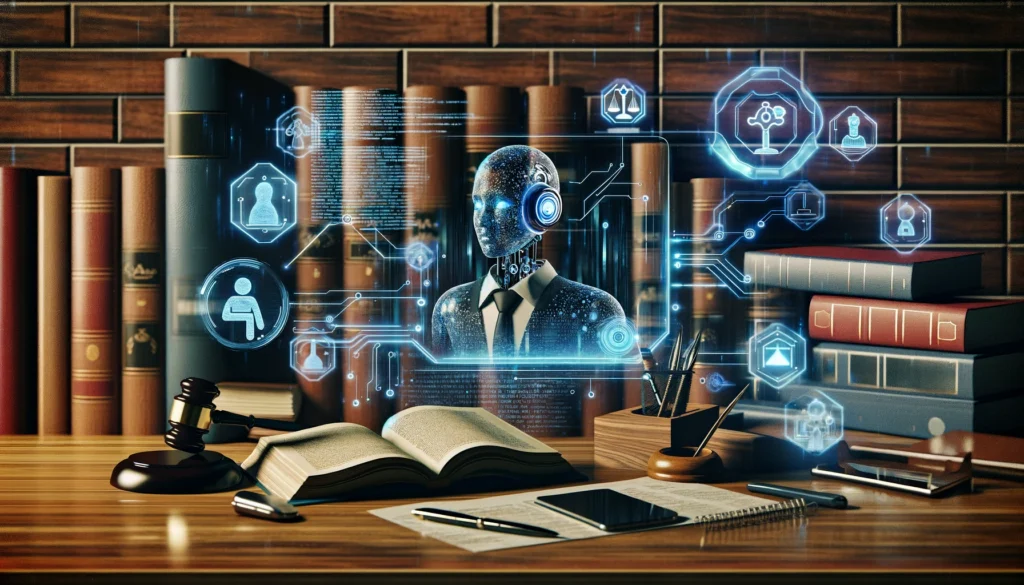
Setting the Stage: The Intersection of Technology and Paralegal Work
The legal profession is embracing a digital transformation, with technology playing an increasingly vital role in improving efficiency and accuracy. Paralegals, in particular, find themselves at the forefront of this evolution, leveraging cutting-edge tools to streamline routine tasks. One such tool, ChatGPT, a large language model powered by artificial intelligence, holds promise for significantly enhancing estate planning workflows. This article explores the integration of ChatGPT into paralegal tasks, especially in the realm of estate planning document execution.
Understanding ChatGPT and LLMs: A Primer for Paralegals
Before diving into applications, it’s essential to understand what ChatGPT and large language models (LLMs) are. Developed by OpenAI, ChatGPT is based on the Generative Pre-trained Transformer (GPT) architecture. These models generate human-like text by predicting the next word in a sentence based on context provided by previous words. For paralegals, the relevance of ChatGPT lies in its ability to automate and enhance various legal drafting and communication tasks. Using ChatGPT can save time, reduce human error, and allow paralegals to focus on more complex aspects of their duties, especially critical in estate planning.
Transforming Client Interaction: Enhancing Initial Consultations
Effective estate planning starts with understanding the client’s needs and assets. Traditionally, gathering this information can be time-consuming and manual. ChatGPT can streamline this initial consultation phase through tailored prompts designed to elicit detailed client information.
- Example Prompt: “Can you describe your primary assets, including real estate, investments, and personal property?”
- Example Prompt: “Please provide details about any existing wills, trusts, or other estate planning documents.”
By using these prompts, paralegals can ensure they gather comprehensive and accurate information with minimal effort. Additionally, ChatGPT can assist in preparing interview summaries, making it easier to document and review client consultations.
Precision Drafting: Automating Estate Planning Documents
Once client information is collected, the next step is drafting the necessary estate planning documents. Here, ChatGPT can be an invaluable tool. Creative prompts tailored for common documents can simplify this process:
- Wills: “Generate a standard will template including sections for asset distribution, guardianship, and executors based on the following client information…”
- Trusts: “Draft a revocable living trust, ensuring compliance with [specific jurisdiction] laws and including designated beneficiaries and trustees.”
- Power of Attorney: “Create a durable power of attorney document with provisions for healthcare and financial decision-making authority for the client.”
These prompts are not only efficient but also ensure documents are aligned with legal standards. To further ensure precision, paralegals should verify the generated content for compliance with jurisdiction-specific regulations.
Reviewing and Editing: Cutting Down on Manual Revisions
While automation is powerful, human oversight remains crucial. ChatGPT can assist in the review and editing process, further reducing time spent on revisions. Nuanced prompts can ensure documents are free from errors or inconsistencies:
- Example Prompt: “Review this will for any inconsistencies or errors based on [specific jurisdiction] laws.”
- Example Prompt: “Edit this trust document for clarity and legal accuracy, ensuring all beneficiary designations are correct.”
Integrating these steps with human review allows for a balanced approach, combining the speed of AI with the expertise of paralegals, thus enhancing both accuracy and efficiency.
Efficient Collaboration: Enhancing Team Communication
Streamlining estate planning isn’t limited to client interactions and document drafting. Efficient team communication is also vital. ChatGPT can facilitate this by generating meeting summaries and task updates:
- Example Prompt: “Summarize the key points from this week’s estate planning meeting, including action items for each team member.”
- Example Prompt: “Create a weekly update summarizing progress on estate planning cases and upcoming deadlines.”
These prompts can help paralegal teams stay organized and ensure that everyone is on the same page, ultimately improving workflow and productivity.
Ensuring Confidentiality and Compliance: Best Practices
Given the sensitivity of estate planning, confidentiality and compliance are paramount. ChatGPT can assist in creating compliance checklists and confidentiality guidelines:
- Example Prompt: “Generate a checklist for ensuring compliance with [specific jurisdiction] estate planning regulations.”
- Example Prompt: “Draft confidentiality guidelines for handling sensitive client information in estate planning cases.”
Additionally, it’s essential to implement robust security measures and be aware of the ethical implications of using AI in legal work, ensuring that client information remains protected.
Continuing Education: Staying Ahead with AI Tools
Embracing AI tools like ChatGPT requires ongoing learning and adaptation. Paralegals should stay informed about new advancements and continuously seek training opportunities to fully leverage these technologies. Resources such as webinars, workshops, and online courses can provide valuable insights and keep legal professionals updated on best practices.
Conclusion: Empowering Paralegals through Technology
The integration of ChatGPT into estate planning workflows has the potential to revolutionize paralegal practice, making processes faster and more accurate. By embracing these advancements, paralegals can enhance their efficiency, reduce workload, and focus on providing higher quality service to their clients. As technology continues to evolve, staying ahead of the curve will be crucial in leveraging the full potential of AI tools in legal work.


